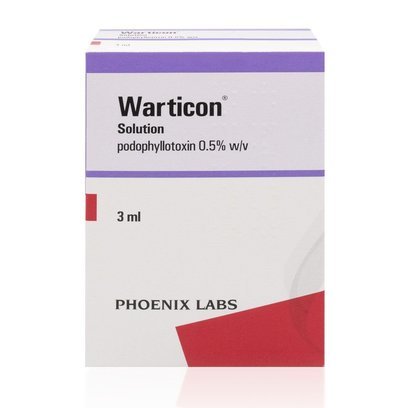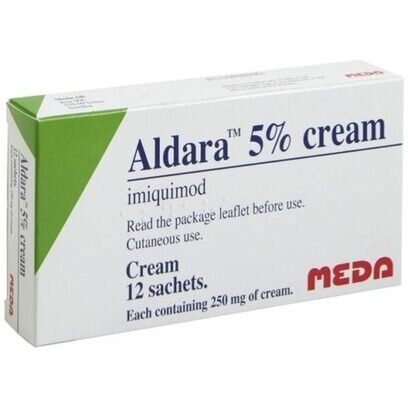Before we can issue a treatment, you’ll need to answer a short assessment. This assessment will help us recommend the right treatment for you.

Warticon Solution | Genital Warts Treatment
From £29.99
Aldara 5% Cream
From £63.99
Our site uses cookies. By continuing to use our site you agree to our cookie policy.
Free standard delivery on orders over £50
Before we can issue a treatment, you’ll need to answer a short assessment. This assessment will help us recommend the right treatment for you.
Genital warts, also known as condylomata acuminata, are a common sexually transmitted infection (STI). While there is no cure for genital warts, the medicines below can help with reducing the external appearance of them.

What are genital warts?
Genital warts, also known as condylomata acuminata, are a common sexually transmitted infection (STI). They are caused by the human papilloma virus (HPV) and look like small fleshy bumps on the skin of the genital area. Genital warts do not usually cause any pain and they are not threatening to your health. However, they can look unpleasant, which can cause emotional distress.
Diagnosis of genital warts
If you suspect that you have genital warts for the first time or if a current or recent sexual partner develops genital warts, you should visit your local sexual health clinic. Genital warts are usually diagnosed after visual examination, so a doctor or a nurse will examine the genital area for warts. Sometimes the warts may be very small, so the professional may use a magnifying glass. If there are suspected warts in places that are not visually obvious, then a more detailed exam may be performed, such as a vaginal, anal or urethra examination.
Prevention of genital warts
To reduce the risk of developing genital warts and other sexually transmitted infections, you should:
Genital warts are caused by the human papilloma virus (HPV). HPV is spread through sexual contact. Both men and women can carry and pass on HPV. Genital warts can be passed on through skin-to-skin contact as well as penetrative sex. The infection is more likely to spread if visible warts are present, however it is still possible for the virus to spread without the warts being visible. The virus does not spread through condoms, however, if there are warts on parts of the genitals that are not covered by the condom, then the infection can still spread. Genital warts can spread to the anal area without necessarily engaging in anal sex and they can also spread to the mouth after oral sex, although this is rare. HPV does not spread from kissing, hugging or from sharing household objects, such as towels, toilet seats and cutlery.
The main symptom of genital warts is small fleshy bumps on the skin of the genital area.
Most people with HPV will not have visible warts or symptoms and the virus will usually go away on its own. If warts do develop, it could be after months or years after coming in contact with the virus.
The most common places to find the genital warts in women is:
The most common places to find the genital warts in men is:
External genital warts are noticed by examining the area visually or by touch. However, this can be difficult if the warts are small and flesh coloured or if the warts are inside the vagina, cervix or anus. They rarely cause symptoms, making it harder to know. Sometimes genital warts will be found during an examination for a different condition e.g. during a smear test for women. If you believe you may have genital warts, you should visit your local sexual health clinic for an examination.
Your partner should go to their local sexual health clinic to be examined. You both should avoid sexual contact until both of your cases of genital warts have cleared up. If this is not possible, you should use a condom.
Unfortunately there is no cure for HPV. Genital wart treatment removes the external warts but it does not kill the HPV virus. HPV can lie dormant and recur at a later date, however it does not always recur.
Genital warts very rarely cause complications during pregnancy, however, the size and number of warts can grow.If you have genital warts or think you may have been exposed to genital warts and you are or may be pregnant, you should see your GP for further advice and treatment.
With treatment, genital warts take approximately 3 months to go. However, this varies for individuals and some people may require more than one round of treatment.
Order Monday to Friday before 14:00pm to guarantee next day delivery